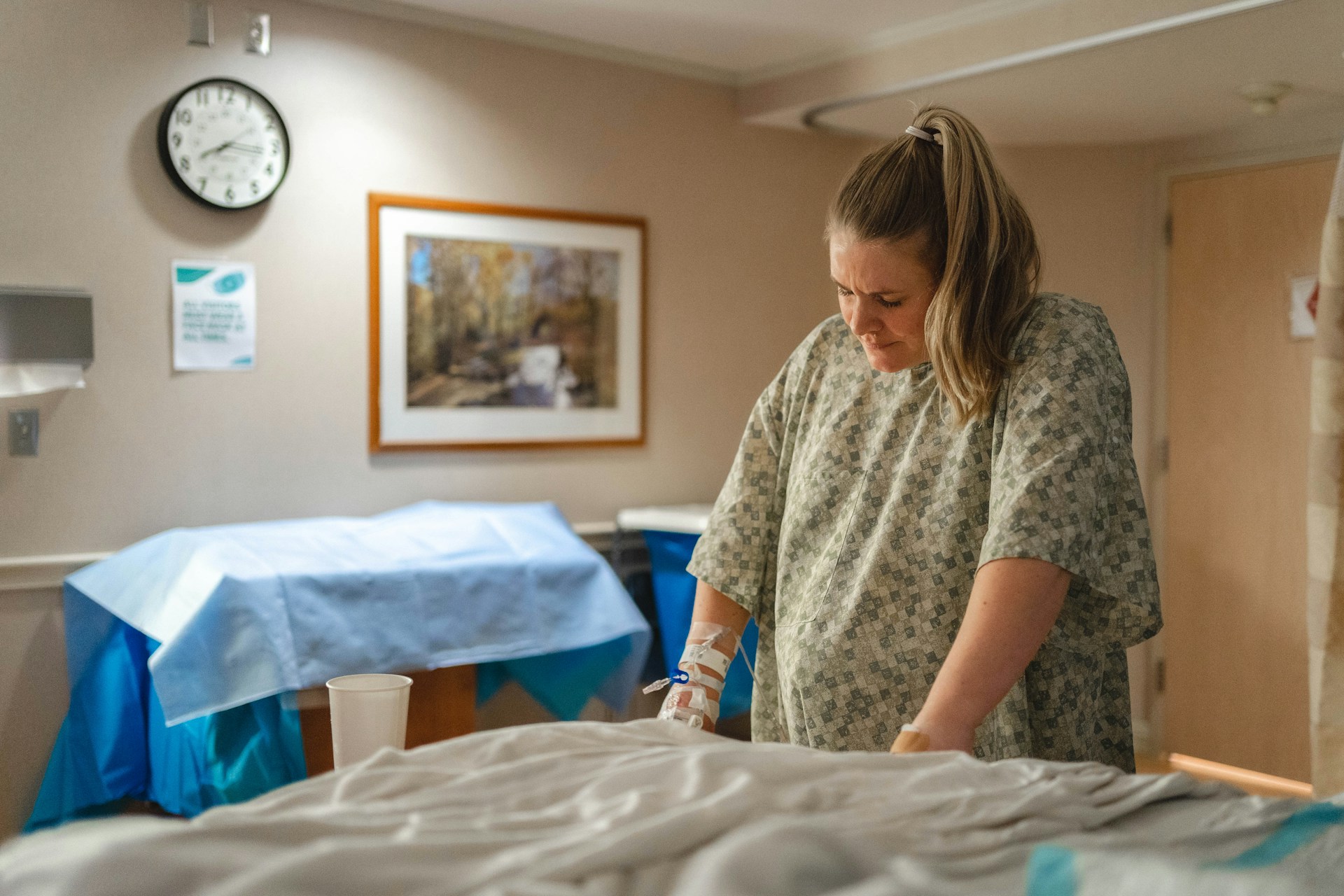As maternal death rates in the UK remain at a 20-year high and inspectors say there is a risk of harm that childbirth becoming ‘normalised’, families and experts are calling for urgent action.
A report by the Care Quality Commission (CQC) on its inspections of 131 locations, found that 65 per cent were not safe for women to give birth – and not a single unit’s care was graded as ‘outstanding’.
These figures are the latest in a long line of issues regarding maternity care in the UK over the last 20 years.
In its report, the CQC found:
- Harm during childbirth was at risk of becoming “normalised”
- A ‘significant’ number of patient safety incidents went unreported
- Inequalities in outcomes for mothers from ethnic minority backgrounds were still prevalent
- A ‘significant’ variation in care across different trusts
- Chronic issues around recruitment and retention of the maternity workforce
Worrying issues continue to be revealed every day with two maternity units in the UK being issued with formal warnings in just the past week.
The crisis is not cheap either. Maternity care payouts cost the NHS £1.1bn last year.
How did we get here?
Concerns about maternity services were first investigated in 2015, after inadequate care was linked to the deaths of three mothers and 16 babies in hospitals in the Morecambe Bay NHS Trust between 2004 and 2013.
The following report by Dr Bill Kirkup revealed “a series of failures at almost every level” which led to then Secretary of State for Health Jeremy Hunt calling for NHS England to produce new guidelines on reporting serious incidents and a review of professional codes of conduct for medical staff.
In 2022, another investigation by Dr Kirkup found similarly shocking failings at maternity units in East Kent had led to the avoidable deaths of up to 45 babies over an 11-year period.
In his executive summary Dr Kirkup said that we must “break the cycle of endlessly repeating supposedly one-off catastrophic failures”.
He added: “If we do not begin to tackle this differently, there will be more.”
In March 2022, the Ockenden inquiry exposed shocking failures in maternity care at Shrewsbury and Telford NHS Trust and found that at least nine women and 201 babies, if given a better standard of care, could have survived.
Examining over 1,500 cases spanning over 20 years, the investigation, led by senior midwife Donna Ockenden, found that fatalities were often not investigated and that some mothers were even blamed for their own babies’ deaths.
Calls for compassionate care, as well as improvement in funding, training and accountability across all maternity services are just a few of the 60 improvements that Ms Ockenden believes could have been made to ensure safety for mothers and babies.
Ms Ockenden is now heading the UK’s largest independent review into the quality and safety of maternity care, involving the cases of 1,700 families at Nottingham University Hospitals.
The report is expected in September 2025.
In January 2024, an All-Party Parliamentary Group on Birth Trauma heard “harrowing” testimony from over 1,300 women. Mothers described pain medication being refused, being left on blood-stained sheets and life-long physical and mental impacts of their experiences.
The resulting report detailed “a maternity system where poor care is all-too-frequently tolerated as normal.”
What is the government doing?
Following the Shrewsbury report in 2022, the government at the time said it would increase spending on maternity care by £95m a year, with the money being used to hire around 1000 midwives and 80 consultant obstetricians.
However, analysis of the new Labour government’s NHS funding revealed that just £2m of that £95m would be ring fenced for maternity care in 2025/26.
Gill Walton, Chief Executive of the Royal College of Midwives (RCM) said: “These budget cuts are more than shocking, they will rip the heart out of any moves to improve maternity safety.
“The Government has taken a wrecking ball to the work that’s being done up and down the country to improve maternity safety.”
The National Maternity Safety Ambition was launched in 2015 and aimed to halve the 2010 rates of stillbirths, neonatal and maternal deaths by 2025.
This target has not been met and maternal death rates in the UK remain higher than they were 20 years ago in 2021-2023, according to data from MBRRACE. Despite decreasing since last year, the number of maternal deaths still stands at 12.67 per 100,000 babies born.
In 2022, the Women’s Health Strategy for England set out plans to explore disparities in maternity care, and address poor outcomes among women from minority ethnic backgrounds and those living in deprived areas.
Yet in June 2023, the Women and Equalities Committee published its report, Black maternal health, expressing concern about Black women’s experience of maternity services and concern that “Government and NHS leadership have underestimated the extent to which racism plays a role”.
The most recent policy for maternity care is set out in the Three year delivery plan for maternity and neonatal services published by the previous government in 2023. However, since coming into power, no further policies to tackle this crisis have been announced by the Labour government.
Speaking after attending the Birth Trauma APPG last year, Ms Ockenden said: “Quite frankly, we can’t keep having report after report with warm words saying things are going to get better, we have to do better.”
At a time of such clear failings, Sheffield Wire’s campaign Maternal health: Unseen threat, unequal care is unearthing the foundations of the crisis within maternity care, and #DemandingBetterBirths.
If you have been affected by the content in this article, you can find support via the Tommy’s helpline at 0800 014 7800, or Petals.




